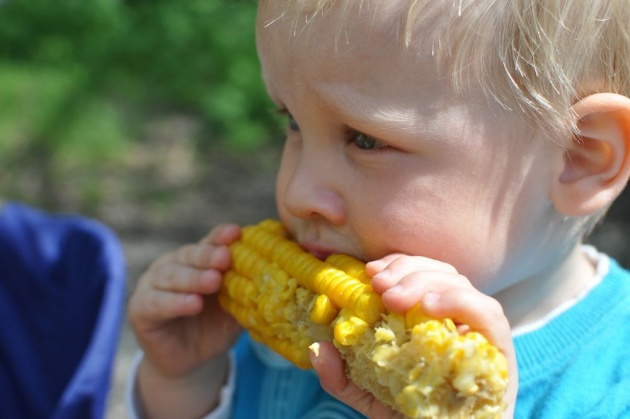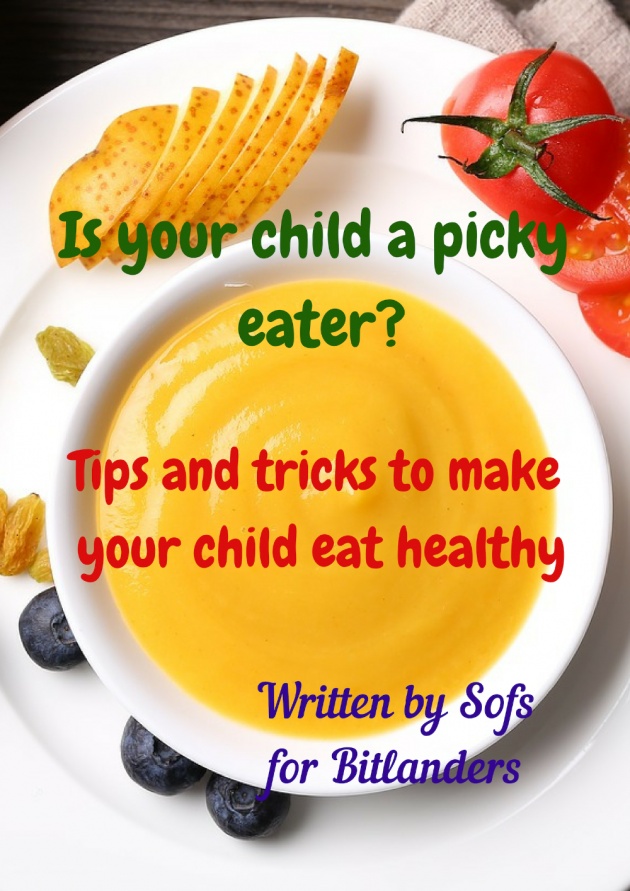 Image credit MapleHorizons via Pixabay modified by sofs
Image credit MapleHorizons via Pixabay modified by sofs
Many of us have been or least have had one picky eater in our families. Some children have notorious eating habits which is a cause for concern to their parents. Parents of poor eaters constantly worry about how to get their child to eat healthy. While picky eating is a problem, there is much you can do about your child’s eating habits.
Sunnybrook Hospital Via Youtube
Have you noticed that some children eat the same kind of food every day. My friend's son I have noticed asks for peanut butter sandwiches every day. While peanut butter is not a bad choice, just having peanut butter to the exclusion of all other kind of food is unhealthy. Vegetables on the plate often gets a battle underway at the table leaving mothers stressed and distraught because of their child's / toddler's fussy eating habits.
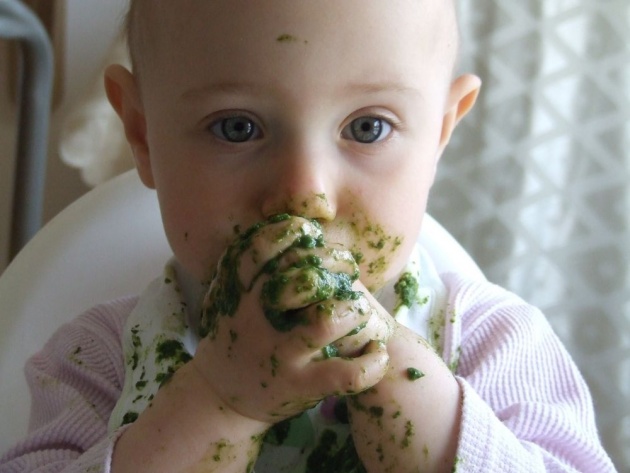
Image Credit Ajale Via Pixabay
What are the signs my child is a picky eater?
- The child sticks to foods that he/she is accustomed to. They find comfort in routines that are familiar and it is the same way with food.
- It is hard to coax such a child into trying different kinds of food.
- Any change in texture makes them uncomfortable about the food put before them. Food that is wet, sticky or soggy seem unwelcome to most.
- Unfamiliar smells and sights too seem too make them suspicious about food.
Image credit Vikvarga via Pixabay
Why a Toddler/child becomes a fussy eater?
It is hard to put our finger on one single reason, however there are many factors which may contribute to a child becoming a picky eater.
- The normal growth rate of an infant is three times faster than that of a toddler. As the growth rate slows down after the first year the child’s eating habits too tend to slow down. This is also a time when new foods are being added into the child’s previously limited menu. This calls for patience and perseverance on the part of parents.
- One of the main reasons doctors and researchers state is that of not introducing the infant/toddler to different foods before the first year.
- When a certain kind of food is not repeatedly added to the regular diet, the child does not get accustomed to it.
- Anxiety on the part of parents that their child would go hungry causes them to offer other options to the child. This in turn could be another reason why a child does not want to taste new varieties of food.
- It is a part of a child's learning and mental development wherein he/she asserts his/her personal preferences. These signs of development are also clearly noticed in the child's preferences of clothing.
- Lack of parental modelling of healthy eating habits.
- Bargaining with or bribing the child to eat certain foods. The child could get the idea that the food in question is not really good and hence parents pay her to eat it.
- Not using sibling influence to advantage.
- The parents themselves could be fussy about certain foods and the child learns from it.
How do parents contribute to the child's fussy eating habits?
Most mothers have a fairly good idea about nutrition and healthy diets. They are well aware that spinach, green beans, carrots, broccoli, Brussels sprouts etc. need to be part of a healthy diet. The problem lies in the inability of parents to introduce their children to a healthy diet.
Why do parents find it difficult to introduce children to eat healthy food?
- Most parents are too busy and do not have sufficient time on their hands to persuade their child into eating healthy food. So they could be putting it off to a later time.
- They decide that it is better that the child eats something/anything rather than starve. Short term solutions are often more tempting than long term goals.
- Some parents try to disguise the undesirable food with food that is acceptable. While this technique works for some time it doesn’t often bear good results in the long run as the child does not get the experience of new tastes and flavors which are being introduced.
- Not being open to letting children feel and experiment with food is often the culprit. ‘Don’t play with your food’ maybe the repeated reprimand all mothers. Play is the child’s first method of learning new things. It is through play that a child senses, feels and gets familiar to new textures and feel. What a child does not feel and know becomes alien to the child.
- Parents may fail to make different /new varieties of food seem delicious enough by the way they present the food. The child needs to visually experience their parents enjoying their food.
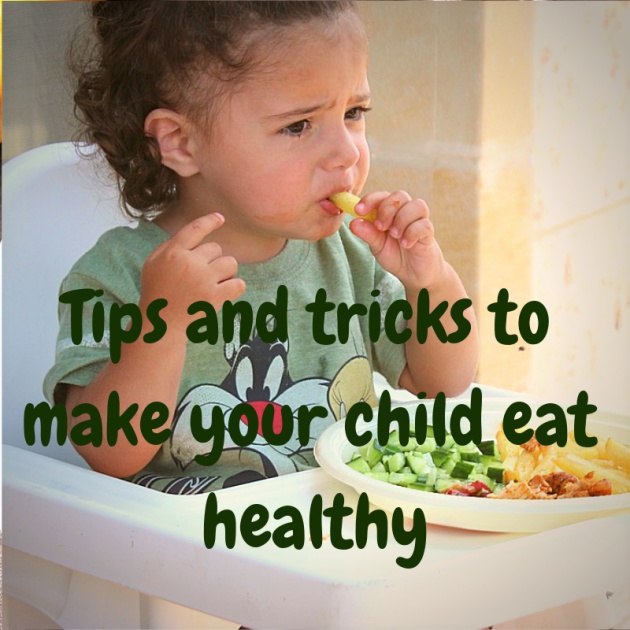
Image Credit Avitalchn via Pixabay modified by Sofs
Tips, tricks and Ideas to help picky eaters eat healthy
- Parental modelling is the best way to teach children. Enjoy the food put on the table in an expressive fashion before your children, a little drama would do no harm. Here is a small tip for parents - take a small serving at first and keep reaching out for more accompanying these actions with verbal expressions of satisfaction that draws your child’s attention to the food.
- Take the help of older siblings in the act of modelling. Encourage them to eat more of the food that is refused by the fussy child.
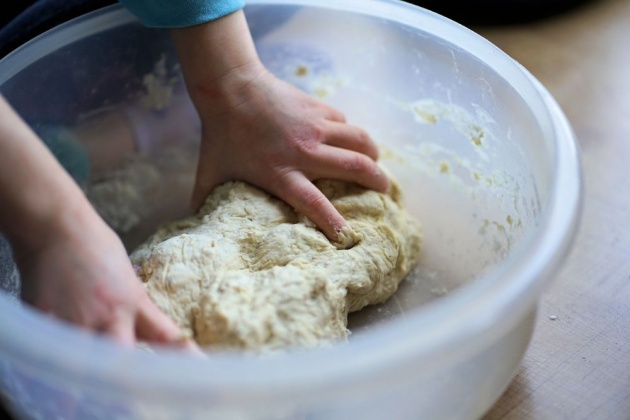
Image credit Webandi vis pixabay
- Include the child/children in the complete culinary journey. Take them to the market and let them choose the vegetables. Personally speaking, I grew spinach in containers in my apartment and always encouraged my children to water the pots and harvest the leaves.
- Cook the vegetables/food items (your child helped pick) with them. Allow them to add measured amounts of salt and other ingredients you use into the dish that is cooked.

Image credit Laterjay via pixabay
- Ask them to serve themselves and others. You may have a bit of cleaning up to do, but I promise you in the long run it will be worth it.
- Become creative with food. Indulge in food art, arrange food like cartoon characters. Give them fun names and make meal time seem like play time.
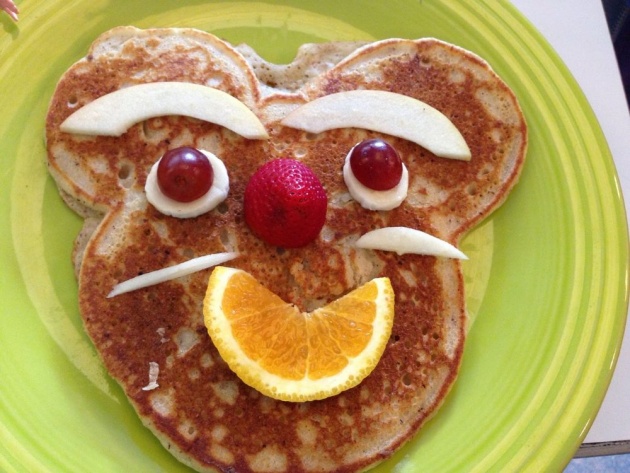
Image credit Laundrya via Pixabay
- Avoid snacks and juices between meal times.
- Chop, grate or cut fruits and veggies into very small pieces.
- Become a children’s cooking expert for your child's sake. Make unacceptable food taste like the familiar without changing too much of the texture or the taste. Pairing familiar food with similar looking unfamiliar foods help.
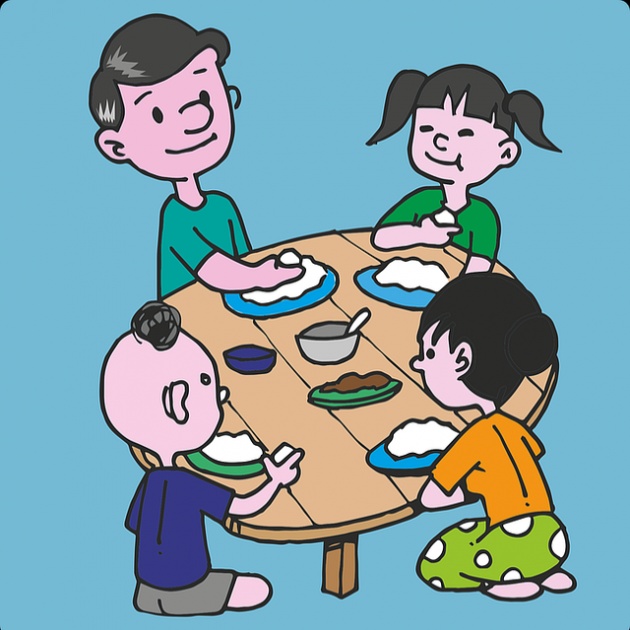
Image credit MoteOo Via Pixabay
- Keep the focus at dinner time or mealtime on ‘family fun’ rather than on food. Children eat more while having fun.
- Do not be threatened by a child's ability to throw up at every mealtime. Treat it like a normal event and continue with the meal routine. This sends a message to the child that nothing changes their eating patterns. It may seem a little harsh, but believe me, children are very smart and learn their lessons by trial and error.
- Keep repeating the newly introduced food twice or thrice a week until they get accustomed to it before introducing then child to other foods.

Image credit Pexels Via Pixabay
- Talk to them about the vegetable /new food that has been introduced. Explain how it helps in their growth and development. For generations Popeye served as our reason to eat Spinach
.
- Add some butter or cream (according to the child’s preference) to make the dish more acceptable to their palates. Please remember that the palates of young children are not fully developed and are very sensitive to spicy or sour tasting food.
My Fussy Eater (Ciara Attwell) Via Youtube
My finally thoughts on the subject
In general picky eaters are made, not born (kindly exclude children with eating disorders from this statement). It is very important to introduce children to a wide variety of foods and healthy eating habit at a very young age. This not only helps children remain healthy but it also allows them to a have a wider gastronomic experience. Most children develop better eating habits as they grow up, so do not worry unduly. Having said that, it is important to be aware of serious underlying health conditions (including eating disorders) which may cause your child to be a poor eater. Take help of a physician or a mental health professional if you think your child’s health is at stake.
Written for Bitlanders
by Sofs
~~oO0Oo~~oO0Oo~~oO0Oo~~
DISCLAIMER: The views and opinions expressed in this blog post are those of the author and does not in any way represent those of those website.
Kindly Note: The sites mentioned in this post are for information purposes only and links are provided for easy access.
Would you like to become a writer and earn through Bitlanders? Click here and claim your $1 reward on signing up.

